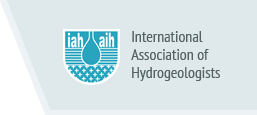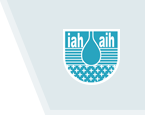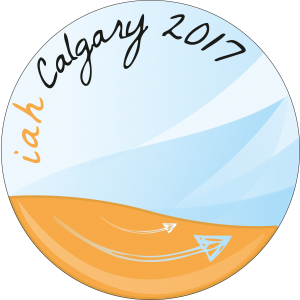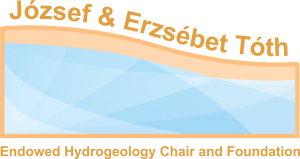Activities
This page features a selection of RGFC’s previous international activities, together with links to additional information, resources and reports. We hope the information encourages you to participate.
An essay dedicated to the International Year of Groundwater
At the invitation of the IAH Executive, the board members of the RGFC-IAH published an essay about regional groundwater flow in the Hydrogeology Journal. The article is part of the “International Year of Groundwater” topical collection. We want to thank the authors for their significant efforts with the essay, and we hope we can continue the discussion of the subject in the IAH.
In this essay, the authors outlined the significance of groundwater flow systems in the context of current and future hydrogeological challenges. They reviewed the extension of the concept for interpreting complex aquifer systems and different hydrogeological environments. In addition, the article revealed terminology issues and introduced the complex aquifer connectivity as a framework.
You can read the essay here (open access): https://link.springer.com/article/10.1007/s10040-022-02577-3
Judit Mádl-Szőnyi, Okke Batelaan, John Molson, Hanneke Verweij, Xiao-Wei Jiang, José Joel Carrillo-Rivera & Ádám Tóth: Regional groundwater flow and the future of hydrogeology: evolving concepts and communication. Hydrogeology Journal 31, pages 23–26
Access all the Essays produced for the Topical Collection “Year of Groundwater”, which is entirely available as open access, here.
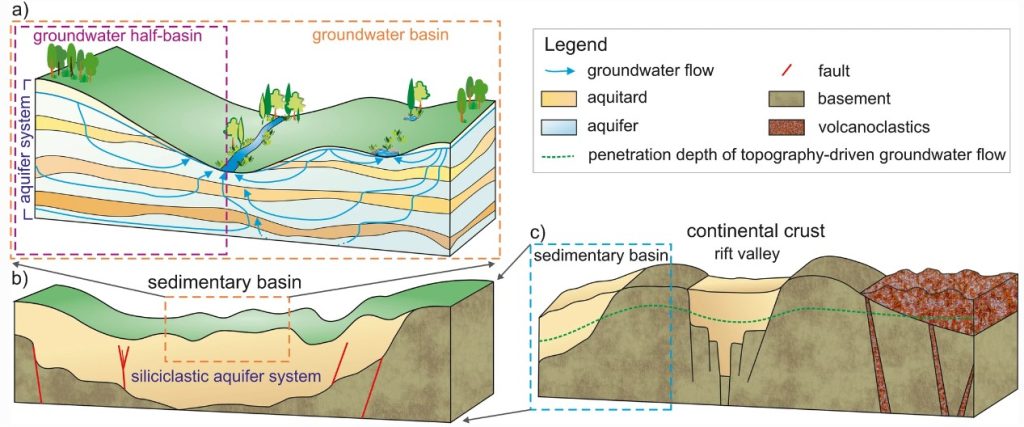
Relation of different frameworks to groundwater flow interpretation: a) groundwater basins; b) sedimentary basins;
c) terrestrial crustal aquifer system (modified after Yardley and Bodnar (2014)
Special Issue “From Groundwater Flow Understanding to Sustainable Water Management”
Strategic management of water resources is the key to a sustainable environment and future economic development. This requires knowledge of gravitational groundwater flow systems from the local to regional and basin scales. This Special Issue aims to analyze topics connected to the physicochemical processes of groundwater flow systems and their economic resources, geogenic and anthropogenic contamination and hazards of fluids, fluid–rock interactions in deep and shallow flow systems, vulnerability and management of aquifer recharge, water-based heat utilization in the light of climate change, and also legislative frameworks toward sustainable development goals.
Original research articles, theoretical, field, experimental, and numerical studies, and comprehensive review papers in the field of hydrogeology and geochemistry focusing on defining groundwater flow and preventing, controlling, and mitigating negative environmental impacts (quality and quantity) related to groundwater, including those in developing countries, are welcome.
This Special Issue brings together manuscripts from different fields of groundwater studies with the common aspect of understanding regional groundwater flow systems for improved water management. The Special Issue is initiated by the Regional Groundwater Flow Commission of IAH and the ENeRAG H2020 project and is connected to the International Symposium on Geofluids held in July 2021.
Guest editors:
Prof. Dr. Judit Mádl-Szőnyi
Prof. Dr. Marco Masetti
Dr. Hanneke Verweij
Dr. Ádám Tóth
Dr. Brigitta Czauner
Prof. Dr. John Molson
Please visit this website for more information: https://www.mdpi.com/journal/water/special_issues/ground_flow

